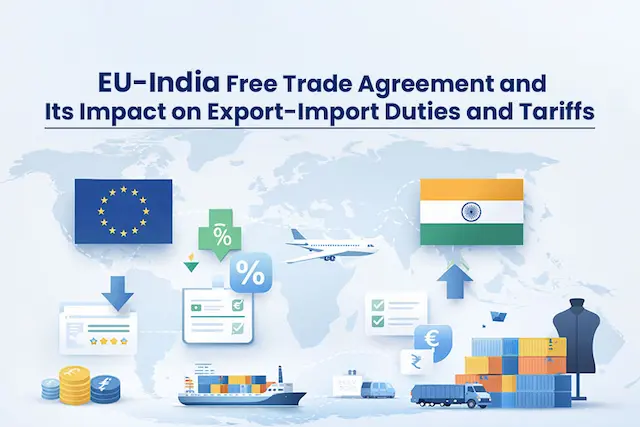Embarking on international trade ventures requires strategic financial management, and one powerful tool that exporters often turn to is export factoring. This financial arrangement offers a unique solution to the challenges of working capital management in the realm of global commerce.
In this blog, we delve into the advantages and disadvantages of export factoring, shedding light on how this financing mechanism can empower businesses in the competitive landscape of international trade.
From improved cash flow and risk mitigation to potential drawbacks and considerations, this exploration aims to provide a comprehensive understanding of export factoring and its implications for businesses engaged in cross-border transactions.
What is Export Factoring?
Export factoring is a financial arrangement that provides working capital to exporters by allowing them to sell their accounts receivable (invoices) to a third-party financial institution known as a factor. This process helps exporters improve cash flow and manage the risks associated with international trade.
How Export Factoring Works

Here’s how export factoring typically works:
Agreement with a Factor: An exporter enters into an agreement with a factoring company, which is often a specialized financial institution. This factor may operate domestically or internationally, depending on the scope of the exporter’s business.
Goods or Services Shipped: The exporter delivers goods or services to the buyer, generating an invoice for the transaction. This invoice represents the exporter’s account receivable.
Sale of Receivables: Instead of waiting for the buyer to pay the invoice, the exporter sells the accounts receivable to the factor at a discounted rate. The factor advances a significant portion of the invoice value, providing immediate cash to the exporter.
Collection by the Factor: The factor assumes responsibility for collecting payment from the buyer when the invoice becomes due. This includes managing credit risk, monitoring payment terms, and handling the collection process.
Remaining Payment: Once the factor successfully collects the full invoice amount from the buyer, it deducts its fees and the initially advanced amount. The remaining balance is then paid to the exporter.
Also Read: How Does Export Factoring Work
Advantages and Disadvantages of Export Factoring
Here is a detailed explanation on the advantages and disadvantages of export factoring.
Advantages of Export Factoring:
Optimizing Financial Fluidity with Factoring
Within the contours of factoring, the factor expeditiously disburses a substantial share—up to 80% or even 90%—of receivables within one to two working days upon invoice presentation.
This expedited capital infusion significantly diminishes average receivable days, fostering heightened liquidity and adept working capital management. Such prompt access to funds proves instrumental in sustaining operational agility and fortifying financial resilience for businesses.
Collateral-Free Financing
In stark contrast to the collateral demands often imposed by banks on small businesses, factoring companies typically operate without such requirements. Thorough audits of receivables and buyers by factors mitigate the necessity for collateral, as the financial institution assumes associated risks.
This absence of collateral prerequisites streamlines the funding process, presenting an accessible financing alternative for smaller enterprises without the encumbrance of pledging assets.
Strategic Focus on Core Competencies
Factoring emerges as an efficient solution for small businesses by alleviating the responsibilities and costs associated with collecting customer receivables. The factor assumes a comprehensive role, encompassing sales ledger management, account receivables collection, credit control, and protection services.
This strategic delegation of tasks enables companies to redirect their efforts towards core competencies. By saving time and resources previously dedicated to receivables management, businesses, especially smaller ones, can concentrate on enhancing productivity and fostering strategic growth initiatives.
A Transaction, Not a Debt
Factoring distinguishes itself as a non-loan financial arrangement, absolving businesses of any liability on their balance sheet. Unlike bill discounting services, where discounted bills serve as collateral for loans, factoring operates as a straightforward transaction.
This distinction is pivotal, as it underscores that factoring is not a debt instrument. By leveraging receivables without incurring indebtedness, businesses experience enhanced financial flexibility and a more favorable representation on their financial statements.
Strategic Guidance Services
Factors play a crucial role in recovering dues from buyers across various countries where exporters conduct regular shipments. Their extensive experience equips them with valuable insights into the potential risks associated with dealing with specific buyers or regions.
Many factors go beyond mere financial transactions and extend advisory services to their clients. This includes offering comprehensive credit assessments for overseas buyers, empowering exporters with crucial information to negotiate favorable terms. In instances where a factor declines an application due to a buyer’s poor track record or inherent risks, transparent communication is maintained.
This not only helps exporters steer clear of potentially risky transactions but also encourages dealings with verified and legitimate buyers. Additionally, some factors boast experts on their teams, providing exporters with specialized advice on intricate technical aspects of their clients’ businesses.
Safeguarding Against Bad Debts
Opting for non-recourse factoring offers exporters a valuable shield against bad debts as the factor willingly assumes the associated risk. This strategic choice allows exporters to channel their focus and efforts into business growth, unburdened by concerns about payment uncertainties. With the risk transferred to the factor, the exporter gains the freedom to utilize unlocked capital for expansion and operational enhancements.
It’s important to note, however, that in the realm of non-recourse factoring, there might be a marginal compromise on the cost competitiveness aspect of the financing mechanism. This nuanced consideration underscores the trade-off between financial protection and cost-effectiveness within the context of non-recourse factoring.
Cost-Effectiveness in Factoring
Within the highly competitive landscape of factoring, the associated costs are typically reasonable, rendering it a cost-effective solution for managing sales ledger functions. This holds particularly true in the case of recourse-based factoring, where competitive pricing prevails. As previously highlighted, non-recourse financing options may carry a slightly higher price tag.
However, it’s crucial to recognize that, in this scenario, the cost aligns with the level of risk undertaken by the exporter. While non-recourse factoring may come with a marginally higher expense, it offers a proportional safeguard against potential risks, emphasizing the nuanced balance between cost considerations and risk mitigation within the dynamic framework of factoring services.
Effortless Option
Regarded as a paramount advantage, the expeditious nature of factoring stands out prominently. For exporters steering scalable, thriving enterprises, the imperative is swift access to working capital rather than exclusively focusing on minimizing costs. The dynamic demands of business necessitate agility, a trait significantly hindered by the protracted channels associated with traditional bank loans.
Factoring addresses this need with celerity, enabling quick and seamless access to vital funds. The simplicity of establishing a factoring relationship further sets it apart, as the application process proves notably more straightforward compared to the complexities involved in securing other forms of financing, such as traditional bank loans. This effortless swiftness positions factoring as a catalyst for prompt and unimpeded business growth.
Higher Credit Limits
Embracing factoring often translates into higher credit limits for exporters, offering a distinct advantage in managing their financial affairs. Factors assess creditworthiness based on the buyer’s ability to pay, enabling exporters to secure more substantial credit limits than traditional financing might permit.
This enhanced capacity proves instrumental in supporting larger transactions and fostering expansive business opportunities. With higher credit limits, exporters can confidently take on more significant projects, fulfill larger orders, and navigate the complexities of international trade with a fortified financial foundation. This attribute positions factoring as a strategic financial tool, empowering businesses to operate on a larger scale.
Also Read: Advantages of Export Factoring
Disadvantages of Export Factoring:
Cost Implications
Export factoring, while beneficial, can incur higher costs. Factors often charge fees and discounts, impacting the overall profitability for exporters. The expense structure needs careful consideration, especially for businesses with tighter profit margins.
Risk of Factor Insolvency
The financial stability of the factor is crucial, as their insolvency can pose a significant risk to exporters. Dependency on the factor’s viability adds an element of uncertainty to the overall financial arrangement.
Limited Control Over Terms
Exporters may have limited control over the approval process and payment terms set by factors. This constraint can impact the flexibility required for business operations.
Regulatory Compliance
Export factoring may involve adherence to various regulatory requirements, adding complexity and potential challenges related to legal and compliance matters.
Impact on Profit Margins
Factoring fees and discounts, although facilitating immediate cash flow, can erode profit margins, affecting the overall financial health of the business.
Dependency on Factor’s Decisions
Exporters are reliant on the factor’s decisions regarding buyer approval and creditworthiness assessments, limiting autonomy in managing customer relationships.
Confidentiality Concerns
Some exporters may be uncomfortable with the disclosure of financial information to factors, raising confidentiality concerns that can impact business relationships.
Potential Legal Issues
Disputes or legal issues with buyers, managed by factors in the collection process, may introduce complexities, potentially leading to legal challenges and impacting cash flow.
Credlix’s Rigorous Risk Assessments in Export Factoring
In the world of export factoring, companies like Credlix prioritize continuous risk assessments, even for clients already receiving funds. While this helps ensure careful consideration of creditworthiness, there’s a potential hiccup. Factors, including Credlix, have the authority to reject invoices from a specific customer if their credit profile is seen as risky.
This decision, part of managing risks, might not align with what the exporter thinks, causing complications in the factoring process. This delicate situation emphasizes the need for a careful balance between risk management and a smooth partnership between factors like Credlix and exporters.
Conclusion
In the world of global business, export factoring can be a great friend, offering good things and some challenges too. Getting quick money, less risk, and helpful advice make it a cool financial tool. But, watch out for the costs, relying too much on the factoring, and possible legal troubles.
Companies like Credlix add more smarts with extra checks. If you’re thinking about export factoring, weigh the good and not-so-good parts. Balance is key for success in the big world of global trade, where having the right friends and knowing the ropes can make all the difference.
Also Read: Types of Export Factoring




